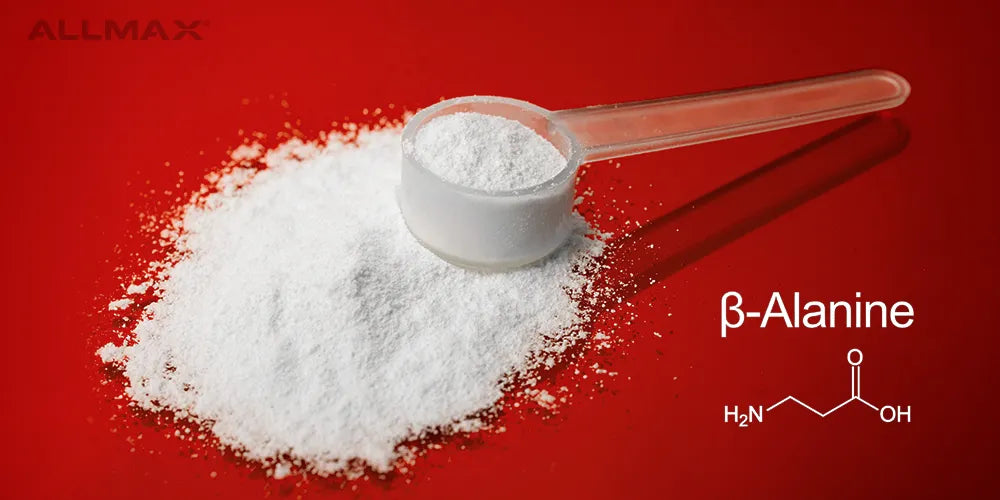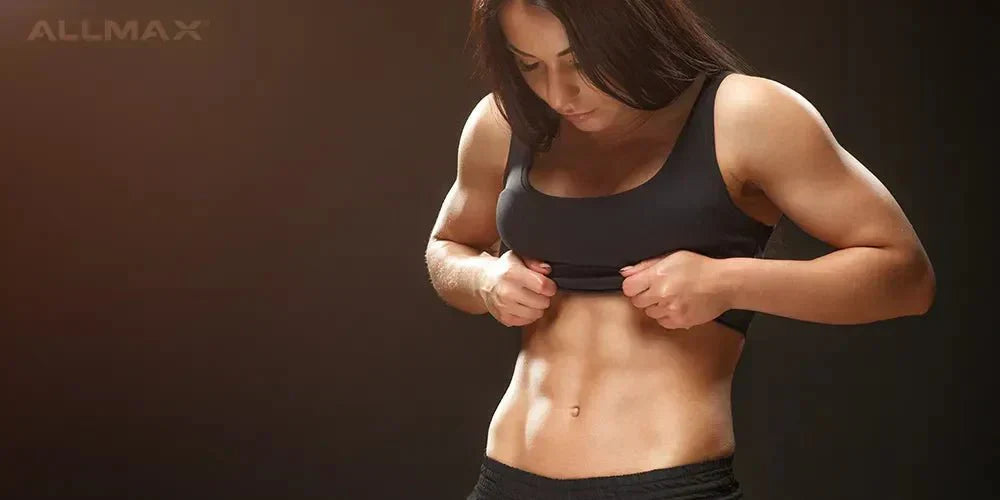Article Summary
- Chest muscles often lag behind their counterparts in terms of development.
- Building impeccable pectorals depends on proper exercise choice and precise training form.
- The chest is best stimulated when fully stretched and flexed.
- Don't compromise on your workouts or your nutrition. Follow your chest workout and nutrition/supplementation plan to the letter.
- 12 weeks of flys, dips, and presses-combined with adequate rest and quality supplementation---will guarantee impressive results!
How to Get a Bigger Chest: 12 Week Bodybuilder Chest Workout Routine

The Chest Challenge: How to Get a Bigger Chest
Narrow, misshapen, bottom-heavy or lacking depth, poorly built chest muscles can ruin an otherwise phenomenal shape. So why does the chest so often lag behind the rest of one’s physique? Rather than being a case of poor genetics or a particular stubbornness unique to pectoral muscle tissue, a person’s inability to build dense chest musculature can usually be traced back to inferior training form, improper program structure, and poor exercise selection. By rounding out their chest training program, consistently working this complex muscle grouping , and targeting it with perfect form, lifters are more likely to experience superior chest development.THOSE WHO SEEM PERMANENTLY ATTACHED TO THE BENCH PRESS AND WHO POWER UP THE BAR AS IF AT A POWERLIFTING MEET OFTEN EXHIBIT A MASSIVE LOWER CHEST, BUT LACK THE AESTHETIC FLOW MORE COMPLETE DEVELOPMENT CONVEYS.
As one of five muscle groupings (among which are the latissimus dorsi, deltoids, trapezius, rotator cuff muscles and serratus anterior) which work to move the complex, multi-directional shoulder joint, the chest muscles, when fully built, is much more than a wide, thick and jutting centerpiece for well-balanced upper body development. In fact, when it comes to pushing one’s weight around, the muscles of the chest (comprised of the two-headed pectoralis major – which forms the bulk of chest mass from upper to lower – and three-headed pectoralis minor – situated beneath the pec major on the outer chest) quite literally rise to the occasion, assisting upper arm extension and flexion though the involvement of the scapula, clavicle and humerus bones and associated muscles. A prime mover (along with the anterior deltoids) in mass-building movements such as the bench press, the chest is best stimulated, and thus developed, when fully stretched and flexed and targeted through movements designed to maximize development across its upper, lower, middle and outer muscle fibers. Though it can be adequately worked with several well-chosen multi-joint movements (the aforementioned bench presses along with dumbbell presses – flat-bench and incline – and dips, which, indeed, should form the basis of any good chest mass gaining program), the chest, given its structure, should be worked with a broad range of both isolation and compound exercises to ensure full, complete development and chest growth. The following article will provide one of the best chest workouts for bodybuilding, based on the most effective and best chest exercises around, both isolation and mass-building. Should you precisely follow it, you will soon be sporting the best chest development to rival, and no longer will you be covering up when the hot weather beckons.
Steve Kuclo & Pham Flexx Pro Level Chest Workout for Rapid Growt
Build Large, Powerful Pecs – The Right Way
Along with the complete execution of each of the movements below, and a willingness to train to failure on each set, there is little else to stipulate regarding the following chest workout for bodybuilding routine. What is essential, however, is an ability to complete this program to the letter. When addressing bodybuilding nutrition for impressive muscle-building results you would not compromise your diet by gorging on fast foods or by taking inferior supplements.YOU MUST AT ALL TIMES AIM FOR QUALITY WHICH, DULY ACQUIRED, WILL BE REFLECTED IN THE SIZE AND SHAPE OF YOUR MUSCLES.This same philosophy holds true when hoisting heavy iron. From rest between sets to number of sets and reps prescribed, it is important to not overlook a single step in your quest to build the kind of muscle that makes Ronnie Coleman do a double take. Experience shows that a single missed step can lead to a degree of trainee complacency, which may ultimately establish poor training habits and, in turn, encourage subpar results.
NEEDLESS TO SAY, PROPER NUTRITION AND ADEQUATE REST ARE IMPORTANT MITIGATING FACTORS AGAINST OVERTRAINING
As is correct training form and consistency of effort. The following chest bodybuilding workout is hard, but with sufficient recovery from each session, a well-balanced diet comprised of 35 percent proteins, 50 percent complex and fibrous carbohydrates and 15 percent essential fats, a good selection of quality supplements, a mental attitude conducive to pushing through all pain barriers and limitations to success and a willingness to train with volcanic fury, your results will be most impressive. Guaranteed.
Chest Workout Plan
Flat Bench Barbell Press
A movement responsible for adding more chest mass than any other, the flat bench barbell chest press is often called the king of the upper body movements, and for good reason: because of its angle of execution and involvement of more assisting muscle groups, it allows massive amounts of weight to be lifted. And when done correctly it serves to isolate the entire pec region, stimulating maximum muscle fiber recruitment. Muscles worked: entire chest region Advantages: allows a greater range of motion and is safer (compared to bench presses). Execution Beginning movement with dumbbells pressed together (with arms fully extended and palms facing feet), slowly lower weights until each dumbbell slightly touches the outer-middle portion of the chest before (without resting) pressing back to the starting position.
Dumbbell Bench Press
Like the bench press, the dumbbell version activates maximum muscle fiber engagement, but with a muscle-building twist: it allows a slightly deeper range of motion and, because each arm works independently, the chest muscles are presented with a greater challenge and must work harder to stabilize the arms through their full range of motion. Furthermore, because the arms are not clamped into a fixed plane (as when using a bar), the shoulder joints freely navigate their own natural angle of ascent and descent; this may activate more muscle fibers while ensuring fewer injuries. Muscles worked: entire chest region Advantages: allows a greater range of motion and is safer (compared to bench presses). Execution Beginning movement with dumbbells pressed together (with arms fully extended and palms facing feet), slowly lower weights until each dumbbell slightly touches the outer-middle portion of the chest before (without resting) pressing back to the starting position.
Weighted Chest Dip
An excellent movement for creating lower-chest depth, the dip will help to carve deep separation in this region to achieve that squared-off look so important for total pec shape and proportionality. Initially use bodyweight as resistance until 12 reps can be performed with perfect technique; then add weight, increasing training load in progressive resistance fashion from session to session. Muscles worked: lower pecs Advantages: a great lower pec shaping movement, which also adds plenty of size. Execution Place hands on dipping bars (holding upper body static and tensing triceps); slowly lower upper body – with knees bent – until arms are bent to a 90 degree angle. Upon complete descent press the upper body to starting position, ensuring shoulders are locked into place to avoid a rotator cuff injury.
Incline Dumbbell Press
Emphasizing upper chest development is the incline dumbbell press, probably the best movement of its kind in existence. Allowing a greater range of motion compared to the straight-bar version, this exercise will help to add that all-important ridge just below the clavicle to balance out chest development from top to bottom. As with their flat bench counterpart, this movement must be controlled and deliberate, possibly more so considering the precarious positioning of the dumbbells (above the head) and the limiting factor of relatively weaker upper pec involvement. Muscles worked: upper chest Advantages: provides a full range of motion and allows for complete development of the upper pecs. Execution Set an incline bench at 30-degrees. Complete movement following flat-bench protocols, with the exception of lowering the dumbbells to the front deltoids instead of the outer pecs.
Flat Bench Fly
A variation of the dumbbell bench press in that it allows a complete contraction of the pectoralis major fibers, the flat bench flye – and this applies to its incline version also – is, however, and for two main reasons, a trickier chest-training proposition. Firstly, your elbow joints, throughout the duration of this movement, remain at a fixed angle, which restricts range of motion. Secondly, because of its lack of elbow-joint assistance and its fixed plane of resistance, the amount of weight that can be lifted will be limited and, thus, the execution of this movement must be slow and considered. It’s not a simple case of controlled lowering, then pressing; the weights must be guided into position in a safe manner, before they are squeezed to completion through pure pec power. Flyes are known to more effectively work the inner chest compared with pressing movements. Muscles worked: entire chest region with an emphasis on the inner fibers. Advantages: works inner chest and ensures a greater peak contraction (compared to its dumbbell counterpart). Execution Lying on a flat bench, and keeping the elbow joints at a fixed angle, slowly lower dumbbells until palms are almost parallel with the outer chest; press dumbbells together and squeeze pecs.
Incline Fly
Along with incline dumbbell presses, this movement effectively targets the upper pecs; unlike its dumbbell version, and due to less deltoid activation at the top of the movement, a greater peak contraction can be accomplished. Muscles worked: upper chest Advantages: greater focus can be placed upon the upper pecs and a tighter squeeze can be achieved upon completion. Execution Replicate flat bench flye form, with one variation: the dumbbells must be angled (on a 30-degree incline bench) above the head, rather than at chest-level, and lowered to the frontal deltoids rather than the outer chest.The Bodybuilder Chest Training Program
The following program is designed to emphasize specific areas of the chest through targeted, twice-weekly training. Weeks one and two – which, when repeated for 12 weeks, form the entirety of the program – will respectively target, along with complete chest development, mass and shape/definition through lighter and heavier sessions modulated via high and low rep sets and staggered rest periods. Note: program to be completed over 12 weeks, followed by one week of rest before (if necessary or desirable) completing the same program with ongoing modifications to training load. RBS = Rest Between Sets: rest periods will alternate between higher reps (8-12 – to target muscle hypertrophy via a flushing effect which shuttles nutrients into the muscles and removes waste products, and which results in profound muscle pumping) and lower reps (4-6 – to stimulate fast twitch fibers, which have the greatest potential for growth). By combining these rep ranges (with lower reps placed first in a sequence of sets and higher reps saved until last) more muscle mass can be built sequentially through fast twitch muscle fiber activation and increased blood flow to the working muscles. Note on movement execution: all exercises ensure that weights are taken through a full range of motion and that no resting occurs at any given point during each set. All sets must be completed as fluidly as possible and muscular failure must be reached with each chest exercise, barbell bench press on chest day to get maximum muscle growth. Note on cardio: depending on your training goals cardio can be done 3 (when mass building) to 6 (when cutting) times per week. For muscle preservation it is advised that 1-2 sessions are of a high intensity, short duration nature (following HIT protocols) with the remaining sessions consisting of steady state aerobic work (30-45 minutes at 80 percent of maximal heart rate). Cardio is to be done, wherever possible, during the morning period so as to more effectively target stubborn fat cells.12 Week Bodybuilder Chest Growth Program
Bodybuilder Chest Exercises Week #1:
Monday – Chest & Triceps
- Flat Bench Press (medium-width grip) – 1 set of 4-6, 2 sets of 8-12
- Incline Bench Flyes – 1 set of 4-6, 3 sets of 8-12
- Flat Bench Flyes – 1 set of 4-6, 2 sets of 8-12
- Chest Dips – 1 set of 4-6, 3 sets of 8-12
- Incline Dumbbell Press – 1 set of 4-6, 3 sets of 8-12
- Triceps (3 sets): Exercise of your choosing 2 minutes rest between first and second set (of each exercise), and 40 seconds rest between final set.
Tuesday – Back & Biceps Routine of your choosing
Wednesday – Legs Routine of your choosing
Thursday – Rest Day
Friday – Chest: Power & Size Day
- Incline Dumbbell Press – 4 sets of 4-6
- Flat Bench Press – 4 sets of 4-6
- Chest Dips – 4 sets of 4-6 (add weight) 2 minutes rest between sets for all sets.
Saturday – Rest Day
Sunday – Rest Day
Bodybuilder Chest Routine Week #2:
Monday – Chest & Triceps
- Incline Flyes – 1 set of 4-6, 3 sets of 8-12
- Incline Dumbbell Press – 1 set of 4-6, 3 sets of 8-12
- Flat Bench Press (wide grip for outer chest development) – 1 set of 4-6, 2 sets of 8-12
- Chest Dips – 1 set of 4-6, 3 sets of 8-12
- Triceps (3 sets): Exercise of your choosing 2 minutes rest between first and second set (of each exercise), and 40 seconds rest between final set.
Tuesday – Back & Biceps Routine of your choosing
Wednesday – Legs Routine of your choosing
Thursday – Rest Day
Friday – Chest: Power & Size Day
- Flat Bench Press (wide grip for outer pec development) – 4 sets of 4-6
- Incline Dumbbell Press – 4 sets of 4-6
- Chest Dips – 4 sets of 4-6, 2 minutes rest between sets for all sets.
Saturday – Rest Day
Sunday – Rest Day
Note: Weeks 3 to 12 – Continue to alternate between week 1 program and week 2 program.Workout Supplements:
- Pre-Workout – 1 Scoop Impact Igniter
- Intra-Workout – 1 Scoop Aminocore BCAAs + 1 Scoop Carbion Electrolytes+
- Post-Workout – 1 Scoop C:Vol + 1 Scoop Isoflex Whey Protein + 1 Serving L-Glutamine
Specialized Chest Growth Training
The specialized chest workout for mass featured above is designed to maximize the benefits of both the shaping and mass building approaches to size building while progressively ensuring thick slabs of upper torso muscle are, over the course of the program, added. In combining low and high rep ranges, twice weekly training and an ideal selection of the best chest-building movements available, this program will, if followed correctly, produce some of the best results you will ever experience. Be sure, however, to always increase training load in line with strength improvements. Should 15 reps with 200 lbs, for example, be achievable, it is then time to increase this load to 210 lbs to ensure failure is again reached on the 12th rep.
References
- Delavier, F. (2006). Strength Training Anatomy (2nd ed). Human Kinetics: USA
- Inner Body: Your Guide to Human Anatomy Online. Online at http://www.innerbody.com/htm/body.html
- King, I. (2003). The Book of Muscle: The World’s Most Authoritative Guide to building Your Body. Rodale Inc. USA



